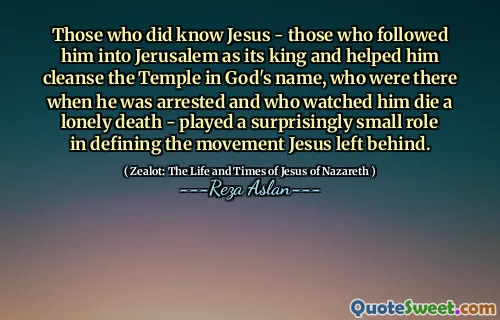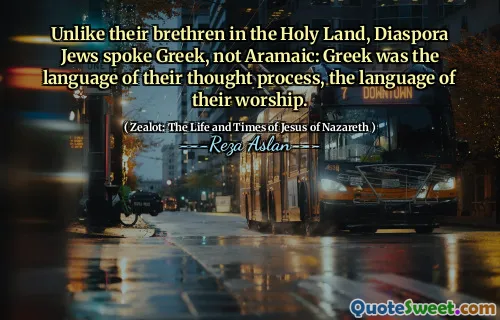
Unlike their brethren in the Holy Land, Diaspora Jews spoke Greek, not Aramaic: Greek was the language of their thought process, the language of their worship.
The quote from 'Zealot: The Life and Times of Jesus of Nazareth' by Reza Aslan highlights a fascinating cultural and linguistic distinction within the Jewish communities of antiquity. The Diaspora Jews, those living outside the Holy Land, embraced Greek as their primary language, setting them apart from their counterparts in Judea who primarily spoke Aramaic. This linguistic difference goes beyond mere communication; it touches upon the very core of identity, culture, and religious practice. Greek, with its rich philosophical tradition and role as a lingua franca across the Hellenistic world, likely influenced the mode of thought and worship for Diaspora Jews, blending Jewish traditions with broader cultural currents. This intersection emphasizes the fluidity of cultural identity and the adaptability of religious expression under varying historical and geographical contexts. It also underscores the complexities faced by early Jewish communities in maintaining their distinctiveness while engaging with surrounding cultures. The choice of Greek in worship might have facilitated wider dissemination and understanding of Jewish beliefs across the Hellenistic world and later influenced early Christian texts, many of which were written in Greek. This dynamic illustrates how language shapes how people relate to their faith and community, shaping cognitive frameworks and spiritual experiences alike, and serves as a reminder of how interconnected culture, language, and religion truly are in shaping human history.

